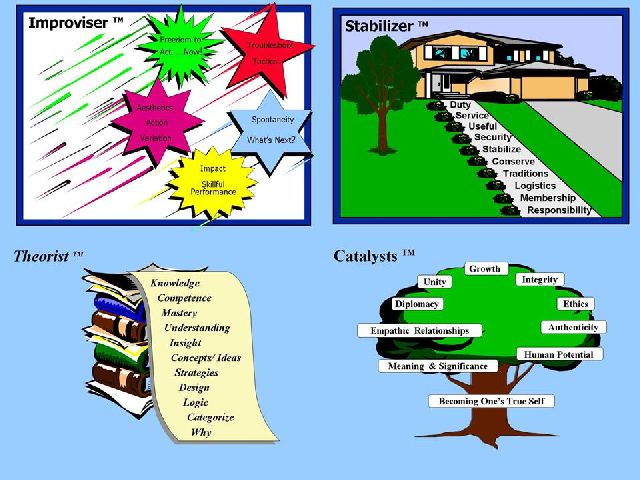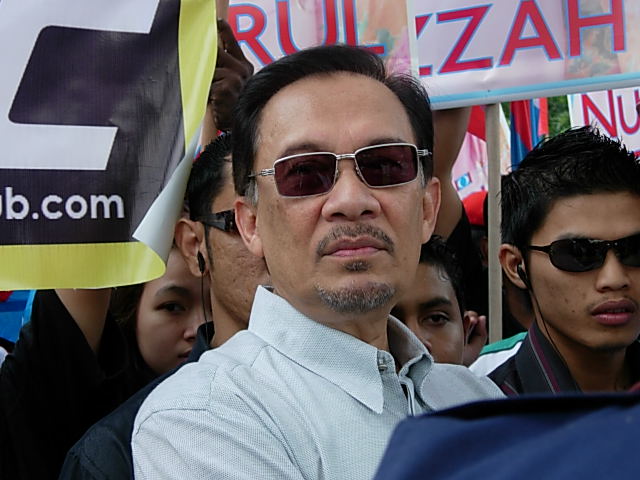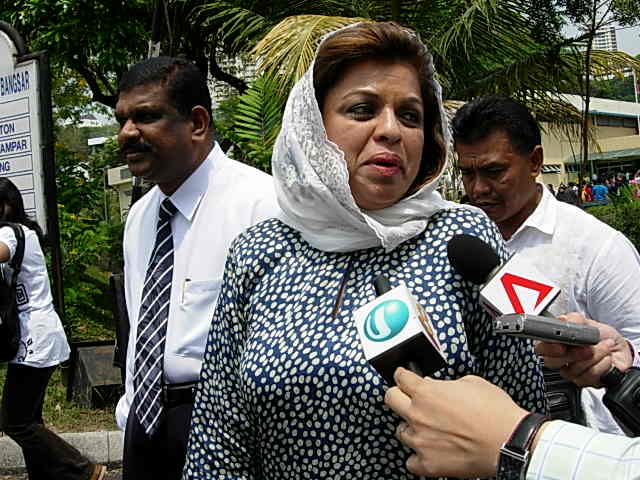Navigating through our election candidates
By Daniel Liew
WITH nomination over, it’s now time to think about the candidates vying for our votes in this 2008 general election. Based on all that has happened in the last couple of years with politicians, voters should take some time to really scrutinise each candidate thoroughly and understand who they are and what they stand for; inevitably our judgment and choice will in many ways be governed by our values and temperament.
Before we can address these questions, we need to ask: How can we tell, with any certainty, what a candidate’s character is? This is where the Temperament Model of personality studies can shed some light.
It is difficult to identify any politician’s character or underlying temperament. The only way is to carefully analyze the person’s whole life or to know them personally. The task is difficult even when assessing current political candidates because most often, candidates and their followers are interested only in displaying the candidate’s best side, while media coverage of a politician may be influenced by particular vested interests. Additionally, of course, our own temperament, political leaning and prejudices can lend bias to our judgments.
Still, as voters we can be well served by trying to recognise a candidate’s temperament, for when a candidate becomes your Member of Parliament or state representative, you can be sure that his/her temperament will drive his/her behavior. In this sense, character does indeed matter.
So as you read the descriptions of the four temperaments below, try to match them to politicians you know, or to yourself as a voter and how you might vote because of your temperament.
Four types of people
Essentially there are four distinct types of people in this world. Starting with Hippocrates in ancient
In the Temperament Model, the four temperaments are: Stabilisers, Improvisers, Theorists and Catalysts. Each temperament has its unique basic needs or motivations, values, intelligence, talents and skills, elements of conduct and ways of communicating. Each of us tends to be most comfortable operating according to one of the four temperament patterns.
For the purpose of this article, I will describe politicians based on the four temperaments. I posit some names of politicians who may fit a particular temperament description but of course, my opinion is not conclusive.

The Stabiliser Politician
Stabiliser politicians have a need to be responsible, to know their obligations and fulfill their duty. They also need to feel and be part of organisations and groups, like their political party, association, or even community. Stabiliser politicians value hierarchy, order, security, stability and tradition. They are “pillars of the society”.
You may notice that they are highly respectful of party leaders; they toe the line or work within the party’s systems and rules. They are good at getting down to the grassroots and serving the people where they are needed the most. They remember important details well to help them know what needs to be done.
However, these politicians are not as good as others in being “political”. They are recognised mainly by their hard work and find it really hard to make exaggerated remarks or promises. But they are intent on fulfilling their promises to the best of their abilities. Another difficulty they might face is the inability to think beyond what is urgent today; being so focused in wanting to fulfill their duties well, they may lose out on future implications.
They may not appear as charismatic as other politicians or as dynamic but they compensate that with their keen sense of knowing their constituency well and understanding the problems faced. They are very cautious and careful when carrying out their task, and will follow through to ensure things are done well.
Based on my statistics, they make up over 40% of the population. They stick with the tried and true, seeking orderliness, stability and security. Most of these party members stay loyal to their parties and leaders.
Prominent Stabiliser politicians in
The Improviser Politician
Improviser politicians have a definite need for freedom to act and to make an impact. They value spontaneity, variety and excitement. Boredom, routine or restrictive rules and regulations frustrate them. Although they operate from a political party, they are typically uncomfortable in overly-structured environments. Most do not stay long with political parties if they have to toe the line and submit to norms.
Their intelligence is tactical. Sensitive to their environment, they perceive what’s happening and readily react to it. They see what needs to be done immediately and seize the opportunity, moving quickly to capitalise on the situation.
Improvisers like to act on impulse and it usually works for them. If they don’t succeed, they optimistically pick themselves up and get on to the next thing. They typically act as mavericks and navigate outside party norms quite well. They are normally noted for their confidence, courage and risk-taking behavior. Often these politicians tackle conflict and crisis head on with little or no consideration for consequences. One typical mistake that Improviser politicians often make is speaking too soon or inaccurately and not paying insufficient attention to their non-verbal communication.
As a politician, they are colloquial, and they thrive as the crisis manager, the negotiator, the fire fighter or trouble shooter. They seem to enjoy being active, finding ways to overcome difficulty with ease and operating effortlessly at the eleventh hour.
Some notable Improviser politicians are MIC president Datuk Seri S. Samy Vellu and caretaker Youth and Sports Minister Datuk Azalina Othman Said.
The Theorist Politician
 Theorist politicians are driven to be competent and to accumulate knowledge which they use to prove or disprove an argument or idea. They value concepts, vision, efficiency, ingenuity, logic and expertise. These politicians are ingenious and innovative, searching for the underlying systems and structures that explain events.
Theorist politicians are driven to be competent and to accumulate knowledge which they use to prove or disprove an argument or idea. They value concepts, vision, efficiency, ingenuity, logic and expertise. These politicians are ingenious and innovative, searching for the underlying systems and structures that explain events.
As politicians, they have strategic intelligence. They excel at identifying the resources and methodologies needed to achieve ultimate goals. They build vision or systems that will bring success. These politicians seek to fulfill their vision and suffer no fools. They are often seen as being wise and intelligent and employ conditionals (if-then statements) and clear definitions in their communications.
Although they are part of a larger political party, they are often considered independent thinkers, and may be impatient with others who are slower or less competent. Pragmatic and skeptical, they nonetheless can be persuaded by logic and evidence.
Theorists tend to present a calm exterior, though their values and emotions are strong and deep. They are often armed with fiery rhetoric and big picture visions of future possibilities. You will also notice that a lot of them would have very strong academic or professional qualifications such as to be a doctor or lawyer.
Theorists are drawn to challenges. They will challenge others, too if they find that they have a point to make, and may withdraw if they concede or if they are proven incompetent or wrong. Based on the Malaysian population, they are the smallest temperament group, less than 10% of the population but there are quite a lot of politicians who are Theorists such as former premier Tun Dr Mahathir Mohamad, former deputy premier Datuk Seri Anwar Ibrahim, former MCA president Tun Dr Ling Liong Sik, and Wanita MCA chief Datuk Dr Ng Yen Yen.
The Catalyst Politician
Catalyst politicians have an overwhelming need to find meaning and significance in their lives. They value relationships highly. They seek empathic relationships where they can grow while cultivating others. As politicians, they are considerate, imaginative and appreciate the uniqueness and potential of each individual. They believe people should be sincere and true.
These politicians are blessed with diplomatic intelligence. They shine at bringing people together, helping them see the best in each other. They have extraordinary talent for insight or intuition and a flair for communication. They are somewhat charismatic, and they tend to build rapport well.
 Catalysts respect morality and ethical conduct and will speak out when their principles are dishonoured. They have a vision of the ideal and trust that, by expecting the best from everyone, the world can excel toward their vision. Catalysts find discord and unrest stressful. Accordingly, they work for consensus and avoid confrontation.
Catalysts respect morality and ethical conduct and will speak out when their principles are dishonoured. They have a vision of the ideal and trust that, by expecting the best from everyone, the world can excel toward their vision. Catalysts find discord and unrest stressful. Accordingly, they work for consensus and avoid confrontation.
Slightly more than 15% of the Malaysian population falls into this temperament. However, few Catalysts are drawn to being politicians because most of them find it hard to stay true to their mission of being a politician and the need to satisfy the masses. Some examples of the Catalyst politician are PAS spiritual adviser and Kelantan menteri besar Datuk Nik Abdul Aziz Nik Mat, caretaker Minister for Women, Family and Community Development Datuk Seri Shahrizat Abdul Jalil, and Parti Keadilan Rakyat president Datin Seri Dr Wan Azizah Wan Ismail.
To sum up, most often during the election campaign, you’ll find politicians trying to fulfill what’s necessary to succeed as an election candidate, but once in office you’ll see that their Temperament will ultimately play a large role in determining their success as politicians.
From my experience talking to voters, it is very clear that people are attracted to those who are similar to them from a core values perspective or by their temperament. My hope is that voters will take some time to get to know their candidates well, to understand their stand on issues, their values and their style of working, rather than their promises.
Part 2 to come: How Temperament influences how we vote
Daniel Liew is managing director of Direct Results Asia Pacific Consultancy Sdn Bhd. He is an organisational development specialist, focusing on helping organisations grow and honour individual differences. He is a leading expert in
3 responses to “Does character matter?”
First, it would be too easy to take your classifications for granted. Please tell us how you matched these politicians to a particular group. From what sources did you obtain your data? Do you know any of these people personally or are you relying upon secondary sources (if so, what types: news reports, etc.)? Is it possible that your opinions are heavily colored by ‘normative’ beliefs.
Second, compartmentalizing is often problematic; even more so when it comes to identifying ‘the’ characteristics of an individual. Wouldn’t it be possible for a person to fit multiple categories?
Finally, can you think of any Stabilizer or Improviser politicians from the so-called alternative parties?
MR
Character is a good word. it should also include important words or essential values like integrity, uprightness, accountability, transparency and trustworthiness.
Is this person a racist? Has any ACA report being lodged against him ? if yes , how many, why and so on.
Has he promised anything that he could not deliver?
Has he said anything to instil fear and hate?
Those should be the important criteria for talking about character.
Whatever the temperament is, what is important is that when a representative promises to do something, he better do it. In respect of electoral politics, that means within 5 years. It makes no sense for the politician to say at the end of his/her term in office that he has only BEGUN to implement his promises and it will take many more years to effect changes. That’s just not good enough.
I believe that the rakyat, regardless of their temperament generally want to choose someone whom they think have good character that would include a sense of fairness, courage and competence.
Thus, a representative is only said to have good character if he/she is courageous enough to break from party line on issues that his/her constituency would simply regard as racist, bigot, corrupt, discriminatory or incompetent.
What does this mean? Well, you and I know that BN has been saturating the waves and the press with propaganda and taking swipes at the opposition without a chance to reply in the same medium. That is gross travesty of justice, yet many BN candidates who regard themselves as having good character are keeping mum over this gross.
We only need to compare with what Lim Guan Eng said about the possibility that if the opposition do come to power, they will give so much space that BN will make a strong opposition.
The contrast cannot be more vivid to show that in the character of BN candidates, there is absence of fairplay, and they lack courage to compete with the opposition candidates on even grounds.